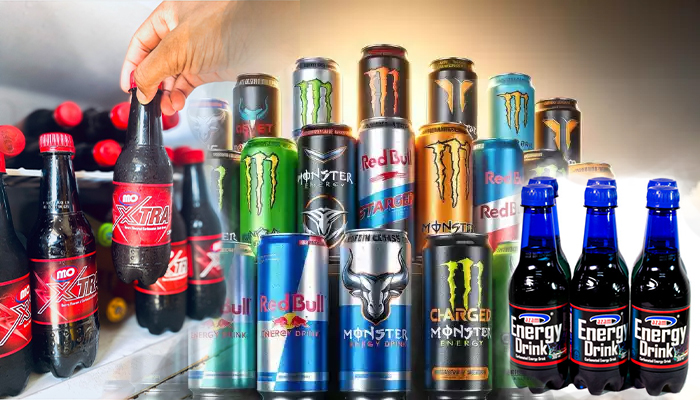Consuming beverages, energy drinks, that contain high amounts of caffeine and other stimulating ingredients, can be dangerous for people with genetic heart diseases. It is not certain that energy drinks contribute to the spike in cardiac arrest but studies indicate that individuals with genetic heart conditions may see their medical situation growing worse as a result of swirling energy drinks. This article explores the complex issues involved in several studies that were investigating whether there was a linkage between energy drinks and cardiac arrest.
The risks of succumbing to an earlier death as a result of drinking energy drinks are considered remote but patients with genetic heart conditions will do themselves a big service if they weigh carefully the costs and the benefits of exposing themselves to a potentially mortal danger.
There are also another set of factors that contribute to cardiac arrest, and a combination with energy drinks may expose the patients to grave perils of predisposing them to heart conditions that may potentially result in death or long-term illness.
A myriad of potential ‘agitators’ that could have also contributed to a genetic heart disease-associated arrhythmia can occur, like sleep deprivation, dehydration, dieting or extreme fasting, concomitant use of QT-prolonging drugs, or the postpartum period.
Also, read: Health Risks: How Tanzania’s Modern Lifestyle Spurs Obesity and Overweight
Excessive consumption combined with other factors may create a perfect storm leading to cardiac arrest. The energy drinks market is bullish due to aggressive marketing strategies where the health hazards are downplayed or conveniently hidden. However, health experts have raised concerns over the risks of consuming beverages that contain large amounts of caffeine and other stimulating ingredients, like taurine and guarana.
A normal, 8-ounce cup of coffee contains around 100mg of caffeine. Meanwhile, caffeine levels in a single serving of energy drink can be as high as 300mg. Energy drinks are popular among children and young people, who consequently may be at higher risk of health problems because of their smaller body sizes and lower tolerance to stimulant drugs.
It is imperative to note energy drinks carry three times of amount of caffeine when compared to a normal cup of coffee, and that is detrimental to the health of energy drink consumers.
The authorities do not regulate energy drinks, so researching the effects that these drinks have on patients is of utmost importance. It has been postulated that the highly stimulating and unregulated ingredients alter heart rate, blood pressure, cardiac contractility, and cardiac repolarization in a potentially pro-arrhythmic manner.
In some strange twist of facts, they are associated with increasing or giving unfair advantages to athletes which may spur them to drink it before exercising or taking part in competitions which may expose the drinkers to more dangerous circumstances.
With higher levels of caffeine working in their bodies, adrenaline is released, a faster heartbeat is noted and when that is combined with the rigours of training and playing, it compounds the situation potentially leading to cardiac arrest.
On average, more education is needed to sensitize those in sports that they have thrice the concentration of caffeine when compared to a normal cup of coffee! There are no advantages to sports if one gulps more energy drinks beyond getting the excitement, the thrill, the fizzy elation, and having a faster blood rush at the expense of straining the heart.
Energy drinks are not sports doping as some have been led to believe. More caffeine in the body will not release more energy from the muscles so energy drinks will not make one run faster or improve on stamina and resilience. But they may present a new set of health risks once ingested and one is also exposed to cardiovascular palpitations.
Also, read: The Hidden Risks of Bottled Water: Your Health is in Uncertainty, Beyond Control
The heart may perspire to cope with sudden excitement and a flush of blood, and when that is combined with a genetic heart disorder, the perils of death may not be far-fetched.
Those who are still determined to get high through energy drinks may need to have a thorough medical check-up with an emphasis on heart conditions, in particular those associated with genetic ailments.
It is true that the correlation between cardiac arrest and consumption of energy drinks is still pristine, and inconclusive. However, tapping those studies into one’s stride can be more beneficial than not having the slightest of medical concerns involved.

